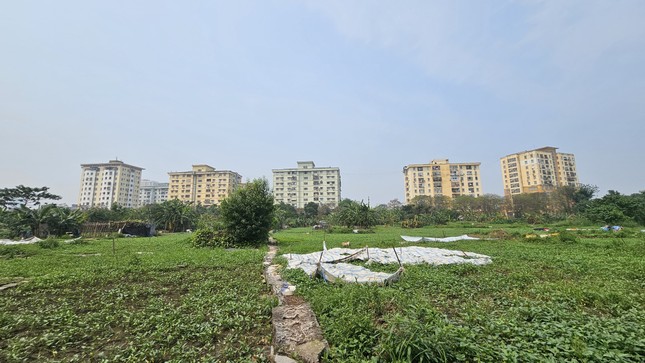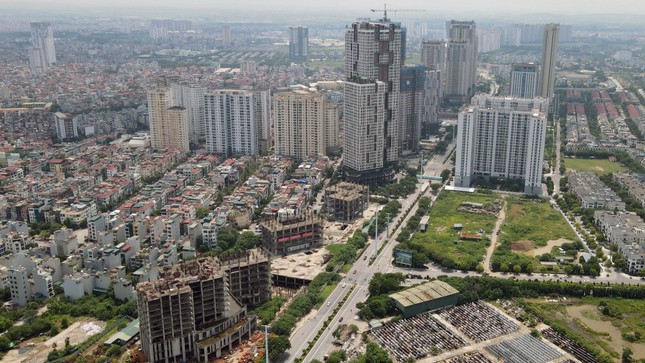Business Today
Recommendation to Expand Commercial Land for Housing Projects
The Ministry of Natural Resources and Environment has proposed a pilot program to expand the use of commercial land for residential projects from January 2025 to January 2030. Under this pilot scheme, companies can agree to use different types of land, in addition to residential land, for commercial housing projects. However, the ministry suggests limiting 30% of the number of projects and 20% of the total area for approved residential development projects until 2030.

According to Mr. Le Hoang Chau, Chairman of the Ho Chi Minh City Real Estate Association (HoREA), companies within the 30% group naturally have an advantage over the remaining 70% group. The 30% group can dominate the market and benefit unfairly by implementing commercial housing projects through agreements on land use rights or by using land that is not designated for residential purposes. This puts the 70% group of commercial housing developers at a significant disadvantage, especially the homebuyers who suffer the most.
The association suggests referring to the experience of implementing Resolution No. 42/2017/QH14 of the National Assembly on “the pilot handling of bad debts by credit institutions.” The resolution was applied to all “credit institutions, branches of foreign banks,” ensuring equal benefits for all parties involved.
Therefore, the association proposes applying a similar approach to the draft pilot resolution, which should not limit the “implementation of commercial housing projects through agreements on land use rights or by using land that is not designated for residential purposes” to no more than 30% of the total number of projects. Instead, it should follow the example of Resolution No. 42/2017/QH14 and increase the proportion of commercial housing project areas under the pilot program to 30% of the approved total area for residential development projects until 2030.
Provincial People’s Committee Responsibility for Pilot Project List
According to HoREA, provinces, districts, towns, and cities at the provincial level that are selected to “implement commercial housing projects through agreements on land use rights or by using land that is not designated for residential purposes” can generate more state budget revenue from land and real estate compared to areas that are not chosen or have fewer selected projects.

The chairman of HoREA suggests that section 3 and section 4 of Article 4 in the draft pilot resolution, which state that “based on the provisions in Articles 1, 2, and 3 of this resolution, the provincial People’s Committee shall specify the implementation of the pilot projects in accordance with the actual situation of the locality,” are suitable in practice. However, section 4 of Article 4, which states that “the provincial People’s Committee shall submit the pilot project list to the People’s Council of the same level for approval before implementation,” is not reasonable. The provincial People’s Council should only regulate the criteria (if necessary) and exercise “supervisory rights” and inspections.
“There is no need to require the provincial People’s Council to approve the pilot project list before implementation. Instead, this responsibility should be delegated to the provincial People’s Committee,” said Mr. Chau.
According to HoREA, section 2 of Article 3 in the draft pilot resolution, which states that the list of projects under the local residential development program must be decided and approved, is inaccurate. Article 27 of the 2023 Housing Law does not require a list of residential development projects. Unlike before, the 2014 Housing Law in section 2 of Article 14 and section 2 of Article 15 stipulated that housing development projects must be “included in the local residential development program” or “the provincial People’s Committee must establish and approve the commercial housing development plan…”. Article 33 of the 2023 Housing Law only requires housing projects to be in line with the approved provincial residential development program.
The association has also noted that section 4 of Article 3 in the draft pilot resolution states that “in addition to the conditions specified in sections 1 and 2 of Article 2 of this resolution, real estate businesses are allowed to change the land use purpose for their projects in accordance with the provisions of land law, housing law, real estate business law, investment law, and other related laws.” However, there is no clear provision regarding cases where real estate businesses are allowed to change the land use purpose for “land other than residential land.” Section b of Article 3, paragraph 122 of the 2024 Land Law only allows changing the land use purpose for “investment projects in commercial housing construction” for “b) Individuals who are granted the right to use land or land use right certificates for non-residential land” but does not permit investors with the right to use land other than residential land.
